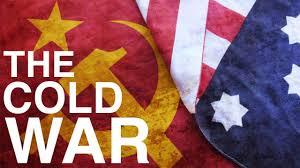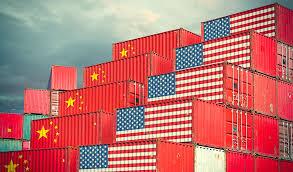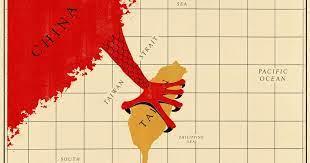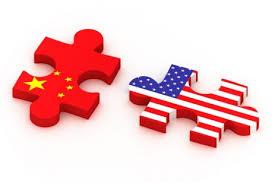What makes nations enemies?

The Soviet Union aimed for Communism’s ultimate global triumph. The free world, led by the U.S., strove for containment. That was the Cold War.
But despite proxy hot wars, there never was much prospect of America and the USSR coming directly to blows. Far too dangerous, with both being nuclear-armed. Mutual recognition of this reality came to be labeled “detente.” Never an explicit agreement; rather a tacit understanding that whatever the conflicts, in the bigger picture the two sides could coexist more or less peaceably. A modus vivendi.
Today’s Russian aggression is a different situation. There’s no pretense of a universalist ideology, like Communism was. Instead it’s an ideology of brazen nationalism, the imagined greatness and moral superiority of Russian culture (belied of course by its abominable behavior).

China’s ideology is more like Russia’s today than in the Cold War. Invoking no universalist values, but a nationalistic Chinese self-assertion, here too claiming some sort of ethno-cultural virtue or even superiority —and its place in the sun. “Communism” a mere detail. China doesn’t actually seek to rule the world.
Yet this is a new cold war because Chinese view the West as an enemy conspiring to keep them down. A new containment paradigm. China does want other nations to kowtow, and hates criticism over its human rights abuses and suchlike, which it sees as just a weapon wielded against it. Belligerently accusing us of belligerence. China’s rhetorical ferocity is astonishing.
Actually, we were not trying to hold China down, and were okay with its economic rise (which could benefit us through trade*) until lately that’s gotten lost amid all the confrontational recriminations. Which have become a vicious feedback loop.

One we should try to break. By reprising the kind of detente we had with the Soviets. Not a friendship, but a mutual understanding to coexist and avoid needless confrontation. We can both benefit from trade with each other while also being economic competitors, but not necessarily geopolitical enemies. (Note that our trade with China vastly dwarfs anything we had with the USSR.)

The key obstacle is the prospect of China invading Taiwan. That would really make for a different, darker, nastier world; a poorer one too, especially given Taiwan being the world’s premier semiconductor source. China considers Taiwan a “renegade province” and has whipped itself into such a nationalist irredentist hysteria that it’s hard to see them backing off. Yet rather than subjugating and thereby devastating Taiwan, China would be better off leaving it prospering as a trading partner — together with the rest of the free world.
That would be the detente deal: China accepting the Taiwan status quo in return for a relaxation of hostility and resumption of global economic integration. That wouldn’t mean we stop criticizing China over human rights and other misbehavior. It wouldn’t mean we’re friends. Just recognition that trade war, decoupling our economies, and severing global supply chains, hurts everyone. As would military conflict of course.
Unfortunately, all the “soft on China” rhetoric Republicans lob at President Biden may make any such accommodation seem politically toxic. And on the Chinese side, an explicit renunciation of force vis-a-vis Taiwan is surely off the table. Nevertheless, a detente could be something that obtains so long as China refrains from invading (or “grey zone” actions like blockading or cyberwar). On that basis we can have peaceable and mutually advantageous economic relations.

Is that a naive, airy-fairy dream? No, totally pragmatic.
And, who knows, someday China might rise into wisdom. After all, we never expected how the Cold War with the Soviets turned out.
* Trump’s saying China was “raping” us on trade was idiotic. It’s a simple principle: if another nation can produce something cheaper than we can ourselves, we’re better off buying it from them and pocketing the gain, and shifting our own production to something else.
